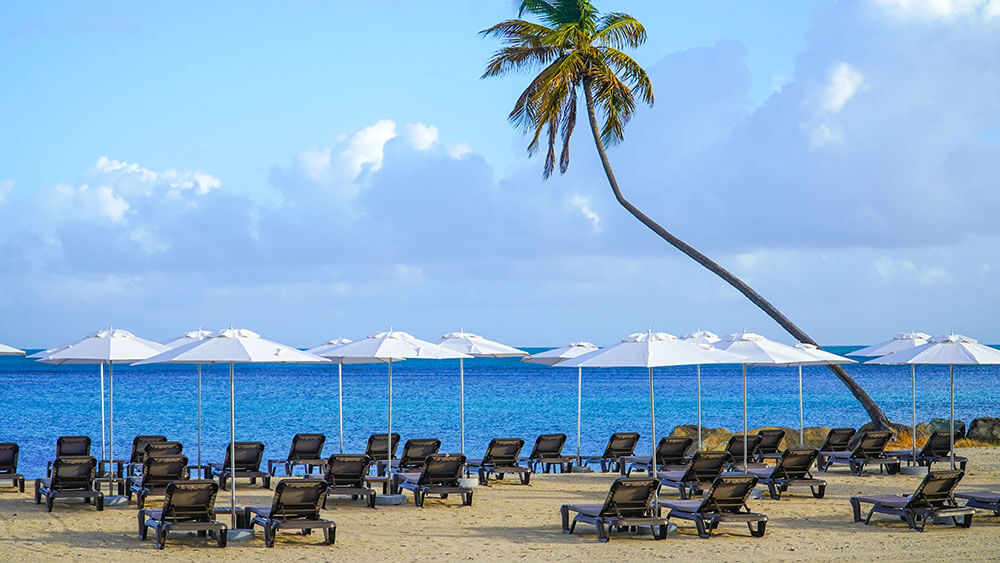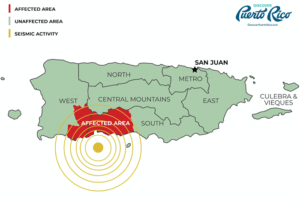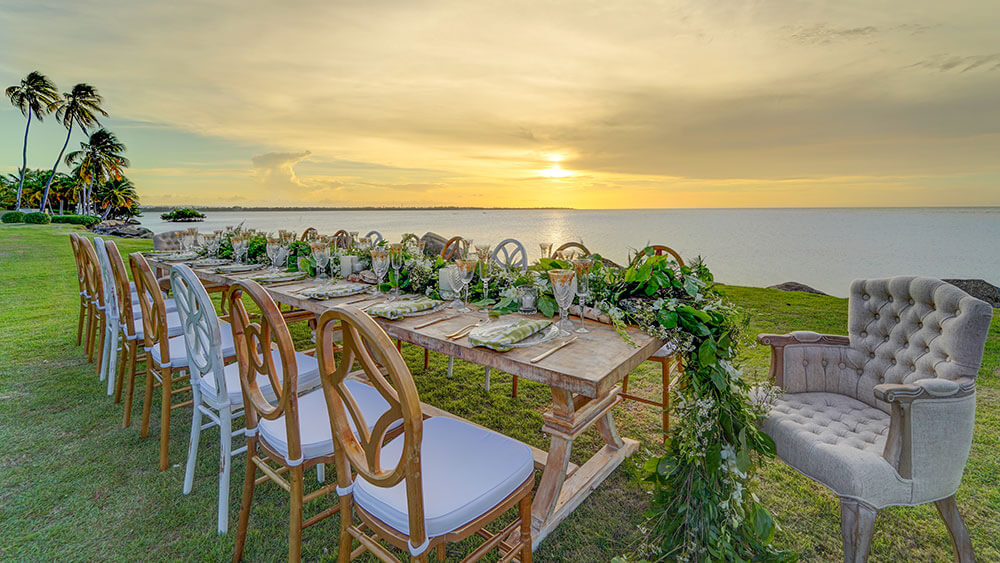
Puerto Rico, including the Hyatt Regency Grand Reserve in Rio Grande, is open for business after the recent earthquake. (Courtesy Discover Puerto Rico)
Renovations of the meeting space and sleeping rooms at the Gran Melia Coco, a 300-room hotel on a tropical peninsula on Puerto Rico’s northeast coast, had been underway for only a month when Hurricane Maria struck in September 2017.
The hurricane was the worst recorded natural disaster to hit the island, killing thousands and wiping out Puerto Rico’s entire electrical grid. In the aftermath, the hotel was closed for months, said Nereida Amador, the hotel’s director of sales and marketing.
By last December, the hotel had not only recovered, but was on a new, upgraded trajectory. Under new owners, the hotel, set on 72 acres just 10 minutes away from the El Yunque National Forest, had undergone a multimillion-dollar redesign and officially reopened Dec. 20 as a Hyatt Regency Grand Reserve. Included in the news about the hotel’s updated meeting rooms and the near-doubling of sleeping rooms — to 579 — was the fact that the project created 525 jobs.

A map suppled by Discover Puerto Rico shows the area of Puerto Rico affects by the recent earthquake and aftershocks.
And then came the earthquakes. The initial quake hit Dec. 28 on the island’s southwest coast, followed by two stronger quakes, and then hundreds more much smaller temblors. The earthquakes didn’t directly impact the tropical peninsula where the hotel is located, said Amador, but meeting cancellations at the hotel soon followed — one for a meeting scheduled this month and one for next month.
“It’s a matter of perception,” said Amador, who was in New York City the week of Jan. 20, where she delivered an on-the-ground report over coffee, along with a map illustrating the area the earthquakes affected. Unlike the damage unleashed by Hurricane Maria, the earthquakes are much more localized, Amador said, and are many miles away from San Juan, the island’s capital. The island’s three major airports remain open, including San Juan Luis Muñoz Marin airport, which is 19 miles away from the hotel.
Amador emphasized ongoing concern for those who are in earthquake-damaged areas — at least one person died in the quakes, and thousands were left homeless. Recovery efforts are underway, Amador said, including those made by the island’s hotel properties, which are providing housing to those whose homes were destroyed. (The PCMA Foundation Industry Relief Fund also is raising money for business-events workers and communities struggling to recover from the earthquakes in Puerto Rico, as well as the bushfires in Australia.)
Amador’s message — most of Puerto Rico is open for business — was similar to the one delivered by Discover Puerto Rico, which includes the suggestion that people can show their support by traveling to the island for vacations, work trips, meetings, conferences, and events, encountering the island’s “unique culture and warm hospitality, while contributing to the island’s economic recovery.”
That unique culture is evident at the Grand Reserve. Incorporating the local art, food, and customs of each hotel’s destination is part of the Hyatt Regency brand, Amador said. One activity offered at the hotel was inspired by the island’s domino-playing culture — San Juan’s parks have long been filled with the sounds of dominos clacking. At the hotel, a “dominos master” is available to set up domino tables poolside, offering instruction — players work in pairs so it’s a networking opportunity — and samples of the traditional island drink, coquito.
Cooking instruction also is available, Amador said, in making authentic Puerto Rican dishes, including mofango, a twist on fried plantains, and a coconut dessert pudding called — and here Amador laughed ruefully — tembleques, which translates to trembling.
Barbara Palmer is deputy editor at Convene.

A table set for dinner at the Hyatt Regency Grand Reserve in Rio Grande, Puerto Rico, looks out over the ocean at sunset. (Courtesy Discover Puerto Rico)
